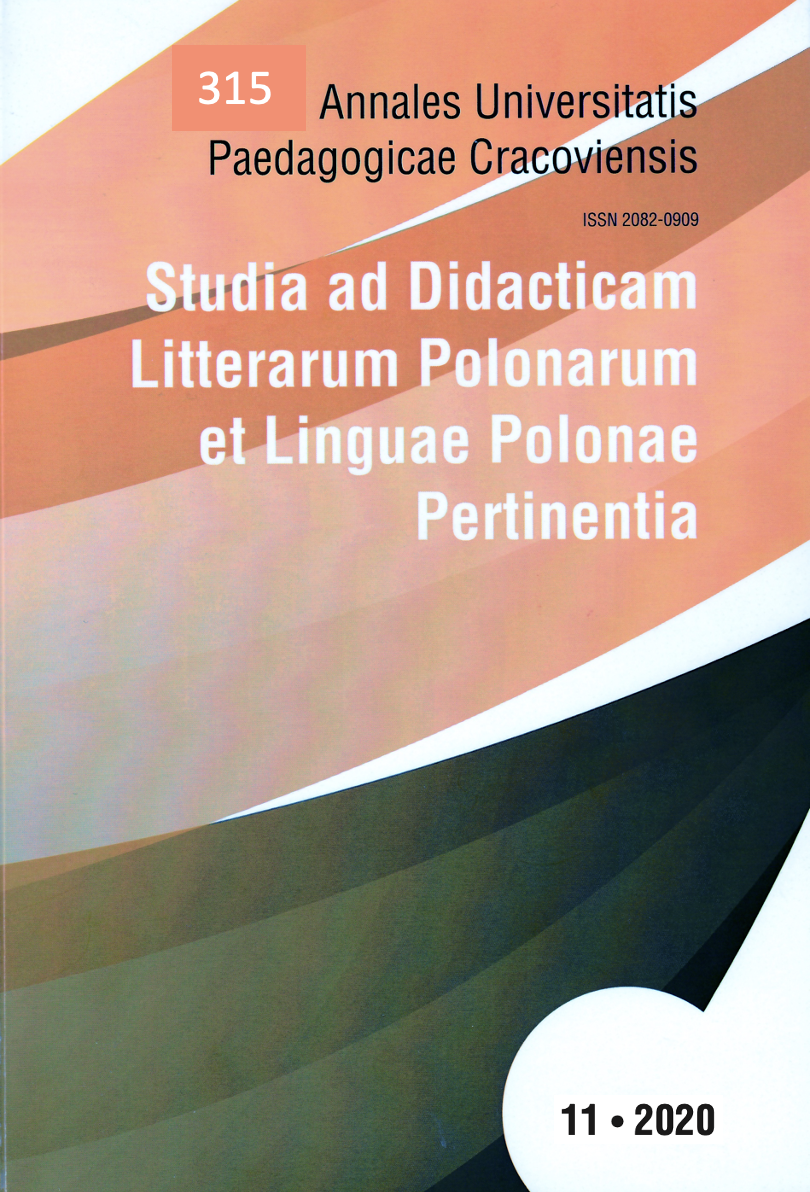Abstract
The author describes an innovative project of teaching/ learning the native language (Czech), emphasizing modern features of the concept, such as: the use of constructivist indications; text-centricity; student activation; respect for their communication needs; application of the criterion of usefulness of acquired skills in the extracurricular life of students; basing the educational process on students’ preconcepts, introducing language learning into a function- al and communicative framework. The author also points to the observance of the language teaching principles that determine the concept, such as: complexity; the relationship between the student’s cognitive and linguistic development, including basing of teaching on a three- -phase model of learning and teaching which uses a constructivist framework of learning (evocation - awareness of meaning - reflection (evokace - uvědomění si významu - reflexe: E-U-R). The further principles are: orientation on learner and the principle of topicality of linguistic knowledge. All of them condition the appropriate innovative concept of language acquisition as a fresh and effective proposal - ready for implementation.
References
Čechová M., Vyučování slohu, Praha 1985.
Grecman H., Urbanovská E., Aktivizační metody ve výuce, prostředek ŠVP, Olomouc 2007.
Hoffmannova J., Homoláč J., Chvalovská E., Jílková L., Kaderka P., Mareš P., Mrázková K., Stylistika mluvené a psané češtiny, Praha 2016.
Janowska I., Podejście zadaniowe do nauczania i uczenia się języków obcych. Na przykładzie języka polskiego jako obcego, Kraków 2011.
Jelemenská P., Sander E., Kattmann U., Model didaktickej rekonštrukcie. Impulz pre výskum v odborových didaktikách, „Pedagogika” 2003, nr 53(2), s. 190-201.
Kvasz L., Princípy genetického konštruktivizmu, „Orbis Scholae” 2016, nr 10(2), s. 15-45.
Nocoń J., Lingwodydaktyka na progu XXI wieku. Konteksty - koncepcje - dylematy, Opole 2018.
Pieniążek M., Język ojczysty jako ‘software’. Polityka językowa i technologia, „LIK: czasopis za litieraturu i kułturu” 2017, t. 3, nr 4, s. 153-164.
Slavík J., Janík T., Významová struktura faktu v oborových didaktikách, „Pedagogika” 2005, nr 55(4), s. 336-354.
Steele J.L., Meredith K.S., Temple Ch., Rámec pre kritické myslenie vo vyučovaní. Príručka I. Bratislava 1998.
Szymańska M., Między nauką o języku a rozwijaniem języka. Koncepcje kształcenia językowego na przełomie XX i XXI wieku, Kraków 2016.
Štěpáník S., Hájková E., Eliášková K., Liptáková Ľ., Szymańska M., Školní výpravy do kraji- ny češtiny. Didaktika českého jazyka pro základní školy a nižší ročníky víceletých gymnázií, Praha 2020.
A Taxonomy for Learning, Teaching, and Assessing. A Revision of Bloom’s Taxonomy of Educational Objectives, red. L.W. Anderson, D.R. Krathwohl, Boston 2001.

